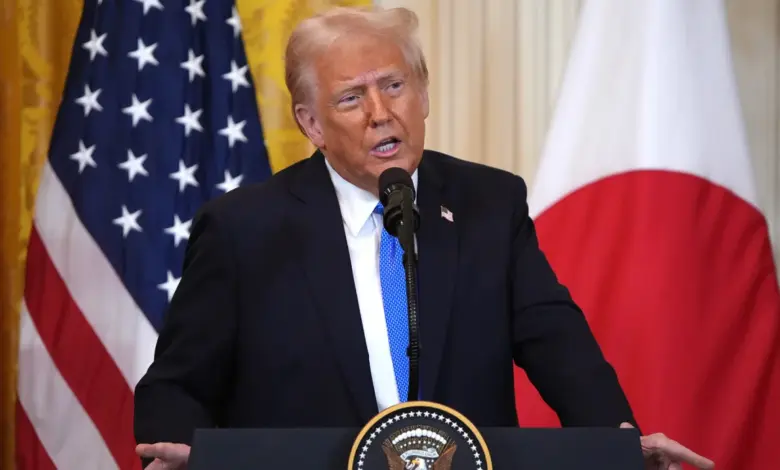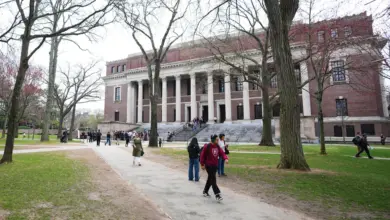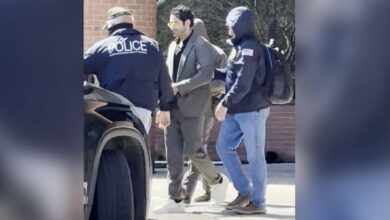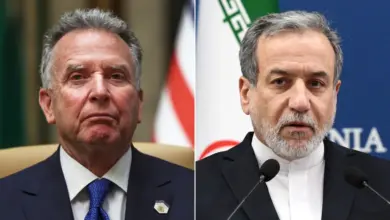
Every day, Donald Trump shatters previous understandings of the presidency and America’s role in the world.
But in his rush to wield vast power and fulfill campaign promises, the new commander in chief is straining the rule of law and gambling with global stability.
Before his second term began, it was assumed that a president wouldn’t simply refuse to spend billions of dollars already authorized by Congress and deploy a private citizen, like Elon Musk, to obliterate huge government agencies enshrined in US law.
The idea that the White House would simply ignore a court order was more a theoretical question for a law school seminar than a potential reality.
Firing government aid workers living in world hotspots would have been unthinkable. As would disrupting a program credited with saving the lives of millions of HIV/AIDS patients.
No other president hatched a plan to force Palestinians from Gaza into Egypt and Jordan — a step that could threaten the Camp David accord, fracture the Hashemite Kingdom and effectively amount to ethnic cleansing.
Nor would any conventional commander in chief suggest making support for a fellow democracy like Ukraine, which was invaded by totalitarian Russia, conditional on Kyiv handing over rare earth minerals as payment.
No modern president ever threatened to annex America’s friend, Canada.
And a nation that became the most powerful in history by building a global system in its democratic, capitalist image was hardly likely to assault the free trade system with tariffs or loosen curbs on bribery in foreign business dealings.
Trump has done all this and more, as he sits at the Resolute Desk in the Oval Office, dispensing power with his Sharpie, making up foreign policy off the cuff — at the risk of igniting constitutional crises at home and turmoil abroad.
Trump is fulfilling his campaign trail promises
The president’s ability to follow through on these policies, and more, will define his second presidency. His success also has the capacity to transform the office he now holds and reshape a global order that has prevailed since the end of World War II.
Trump, the virtuoso of disruption, is unapologetic as he argues he’s simply doing what the country wants.
“I have high approval ratings because I’m using common sense,” Trump told reporters Monday. He’s presenting his extraordinary claims of vast presidential power as him just exercising a mandate to take a sledgehammer to government and turn the tables on a planet he says ripped off the United States for generations.
“A lot of people have said that this has been the greatest opening, almost three weeks, in the history of the presidency,” the president told Fox News in a Super Bowl interview, one stop on his all Trump-all-the-time second-term debut tour.
The White House claims huge wins in forcing Western Hemisphere countries to take back undocumented migrants, in getting a better deal for US ships in the Panama Canal, in forcing Canada and Mexico to strengthen border security and getting Hamas hostages free in Gaza. Some of these victories are real, in part; exaggerated; or illusory. But Trump say’s it’s the start of his new “Golden Age.”
And the president is basking in some of the best approval ratings of his career. A CBS News poll this weekend showed him at 53%. If the final months of Joe Biden’s presidency degenerated into stasis, Trump’s frenzy of activity seems to be forging an image of a man of action doing the country’s business.
Trump won a plurality of votes in 2024 promising change, a reinforced border, an attack on Washington institutions and the dismantling of a world trading system that many Americans blame for destroying their manufacturing jobs while global elites enjoy the spoils.
No one can say he’s not been as good as his word.
Trump’s wins set up a test of the rule of law
But Trump’s fast start — growing out of his need to always project strength and his sense he was spared from a would-be assassin’s bullet to save America – comes with huge risks for the US political system.
Domestically, Trump is posing threats to the rule of law on multiple fronts. And only three weeks into his term, many legal analysts believe that the country is heading to an unprecedented constitutional crisis.
These fears were sent into overdrive by Vice President JD Vance’s X post on Sunday that appeared to raise the possibility that the White House would refuse to accept court rulings on its most controversial programs.
“Judges aren’t allowed to control the executive’s legitimate power,” Vance said. The former Ohio senator’s comments reflected this young White House’s tendency to simply decree the legality of presidential action and disregard other branches of government.
Vance’s post was alarming for two reasons.
Firstly, because the administration has already created so many tests of the rule of law — starting with Trump’s attempt to override the constitutional principle of birthright citizenship — that multiple judges have stepped in to freeze his plans.
And secondly, because Trump is not a rookie president flexing his political muscles in his first few weeks in office. He’s proven his contempt for democracy with his refusal to accept the result of the 2020 election and by pardoning hundreds of rioters who tried to keep him in power on January 6, 2021. And Trump’s two first-term impeachments, which were followed by Senate acquittals, show that his fellow Republicans are likely to do little to hold him to account.
Still, some Republicans insist that America’s traditional constraints on presidents will hold firm. “I mean, the courts, obviously are the sort of the branch of our government that calls balls and strikes, and referees, and I think that they’ve got an important role to play,” Senate Majority Leader John Thune told CNN’s Manu Raju.
During his first weeks in power, Trump has sparked particular concern by trying to simply close down agencies like the US Agency for International Development and the Consumer Financial Protection Bureau. Each of these institutions was created by an act of Congress and is therefore rooted in the law. No matter, the president told reporters, about his plan is to eliminate the CFPB. “Because we’re trying to get rid of waste, fraud and abuse,” he said Monday.
By simply working down his list of government agencies to be wiped out, Trump is ignoring the will of Congress, which has already been expressed with the appropriation of federal funds. The Constitution doesn’t give presidents a choice of whether they enact spending allocated by lawmakers. They are required to do it. The White House is arguing that Trump has a mandate from voters to cut spending and waste. He’s not the only recent president to seek to bypass the will of Congress with executive power — former President Barack Obama’s “pen and phone strategy,” for instance, sometimes seemed to sail close to the law. But if every new president ignored previous laws passed by Congress, America would no longer have a constitutional republic.
Fears that Trump plans to ignore the authority of another branch of government — the judiciary – were fueled on Monday when a federal judge for the second time told the administration to restore grant and loan payments. Rhode Island Chief Judge John McConnell said the administration had violated his earlier instructions to unfreeze billions of dollars in federal aid. In another case in Washington, DC, federal employees told a judge the administration had failed to reinstate USAID workers who were put on leave.
Constitutional crisis isn’t here yet, but could be soon
A constitutional crisis appears to be looming – even if the administration is yet to fully defy the courts.
“I think it’s important to stress that we are not there yet, despite the best efforts of the vice president,” Steve Vladeck, a professor at Georgetown University Law Center told CNN’s Erica Hill on Monday. “And I think, at least for the moment, you know, the courts are … doing their job.” But Vladeck also added: “The question of whether the executive branch’s actions are, in fact, legitimate is not one, historically, that we leave up to the executive branch.”
Still, growing fears of a lawless administration are fueled by multiple signs that Trump sees the rule of law as an inconvenience. He, for instance, fired dozens of prosecutors who took part in January 6 cases soon after he returned to the White House.
And the prominent role of Musk, the tech pioneer who heads Trump’s Department of Government Efficiency, in shredding vast sectors of the federal government is also alarming ethics experts given the huge government contracts enjoyed by his firms, including SpaceX.
Trump compounded these fears Monday with the firing of the head of the Office of Government Ethics, who was only confirmed in his post late last year.
This came as the president granted a full pardon to former Illinois Gov. Rod Blagojevich, who was convicted of multiple charges, including of trying to sell a US Senate seat that was once held by Obama.
Trump’s Justice Department, meanwhile, instructed prosecutors to drop the federal corruption case against New York City Mayor Eric Adams. The department argued the allegations were distracting the Democratic mayor from aiding Trump’s immigration enforcement effort, thus reinforcing worries that he plans to use the DOJ to barter for political favors.
The president tried to splash executive power abroad, too – reiterating that he’s serious about his Gaza relocation plan and forcing Canada to become the 51st state.
Nothing seems too small for his attention: He also reversed a Biden administration environmental initiative to move away from paper straws in the catering industry. “(They) break, they explode. If something’s hot, they don’t last very long, like a matter of minutes, sometimes a matter of seconds, it’s a ridiculous situation,” Trump said.
“So, we’re going back to plastic straws.”




